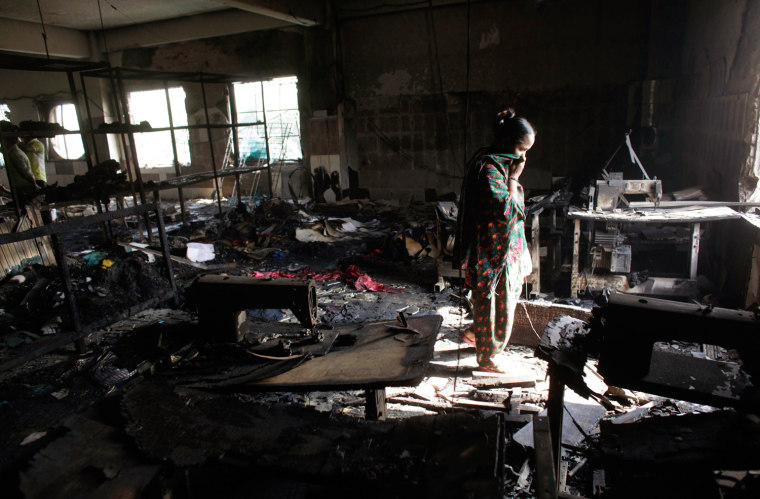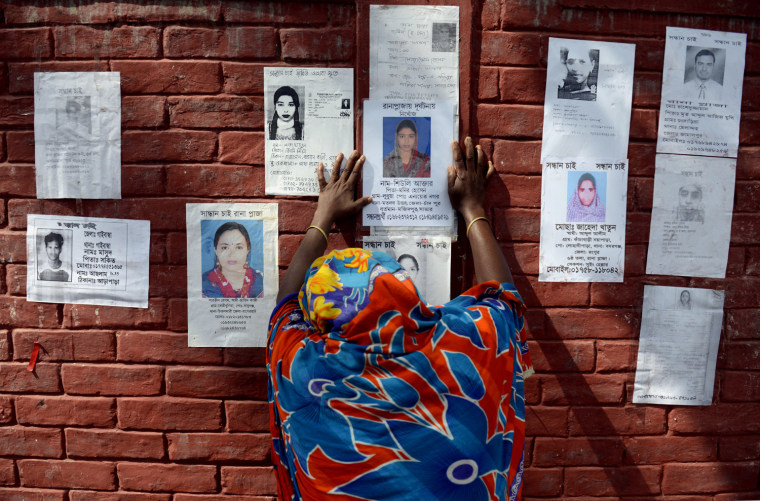
As many of the world’s largest clothing labels signed a pact earlier this month to try to bring safer working conditions to the Bangladeshi garment industry, factory owners in the country were on the defensive, saying they were already struggling to comply with the labor standards Western companies demand while keeping prices at a level they will tolerate.
"Look, we make a particular brand of polo shirt, which they pay us $15 to make and they sell for $150. We only make five percent on that by the time we pay the bank, the workers and compliance costs," said Adnan Bhuiyan, who along with his father owns the major manufacturer MIB near Dhaka, the Bangladeshi capital.
His comments came in the wake of the Apr. 24 collapse of the Rana Plaza, a complex housing five garment factories on the outskirts of Dhaka, collapsed and killed more than 1,100 people. Six months ago, a fire killed 112 people at Tazreen Fashions, also in the city’s garment district.
Despite those deadly accidents, Bhuiyan and other manufacturers were quick to defend their practices and the environment they provide for their workers, saying factories with a sweatshop ethos were just a few bad apples that shouldn’t be allowed to tarnish their image.

Bhuiyan said MIB and other large companies with which he is familiar comply with international labor laws, but even for bigger companies, that isn’t easy.
“There is a tremendous pressure to maintain the minimum level of compliance,” he said. “You have to actually invest a lot of money, so with those costs not every factory can afford to maintain that level.”
The level could soon be raised significantly. Owners of some of the world’s top labels – Tommy Hilfiger, Calvin Klein, Benetton, H&M, Abercrombie & Fitch, Zara and others -- have signed an accord requiring such measures as worker-led safety committees and union access to factories. Others, including Gap Inc. and Wal-Mart Stores Inc., say they have stepped up their own monitoring of working conditions in Bangladesh.
Some manufacturers, however, said that despite Western clothing companies’ talk of ethics and working conditions, the low cost of Bangladeshi clothing is attractive, so the orders are likely to keep coming in.
“What Bangladesh is providing is the highest craftsmanship with the lowest price tag, so I don’t think the buyers will go to another place to make their clothes,” said Bhuiyan.
Other factory owners, however, are on edge. Among them is a man who owns one of the country’s largest garment companies.
Speaking on the condition of anonymity, he said he was concerned that he and his peers were being watched more closely and that they would lose business.
“This is not a good time,” he said. “Nobody wants to talk about this at the moment. Everybody is going through very a tough time now.”
Sohail, another factory owner who only gave his first name for fear of losing Western orders, said Bangladeshi factories and their workers, who typically make about $51 a month, are happy to provide the goods that have made the country’s garment industry so critical to the Bangladeshi economy.
Last year, 5,400 factories employing 4 million workers made 1.3 billion articles of clothing for export, according to the Bangladesh Garment Manufacturers and Exporters Association. That clothing, worth more than $19 billion, accounted for 79 percent of the country's total exports.
If Western companies demand significant improvements in working conditions without being willing to pay more, he said, Bangladesh will suffer.
“Before, Vietnam dominated the market with low costs, then Indonesia, and now it is Bangladesh,” he said. “It is a lifeline for us, and we can’t afford to lose this.”
Related: